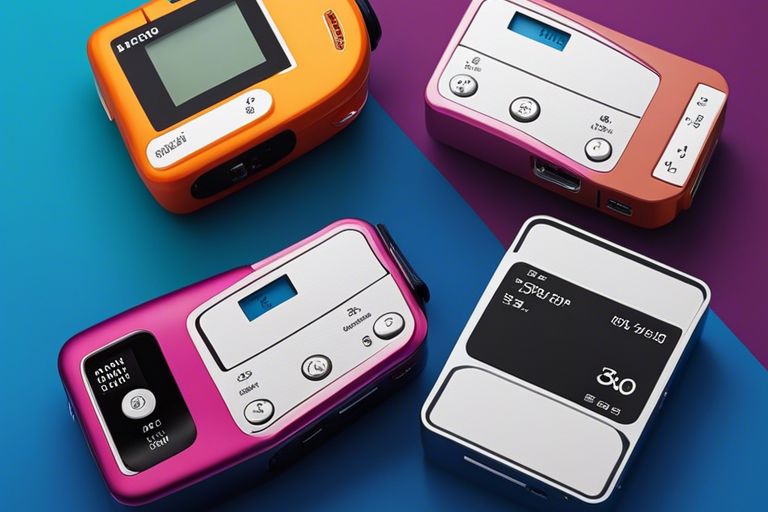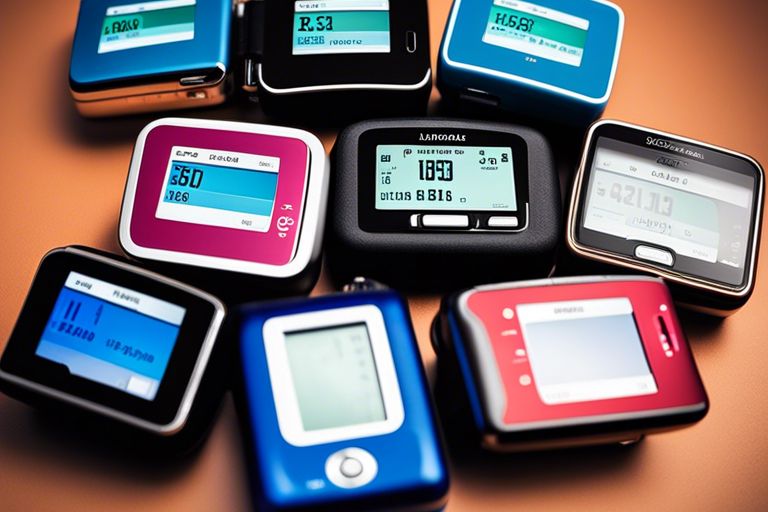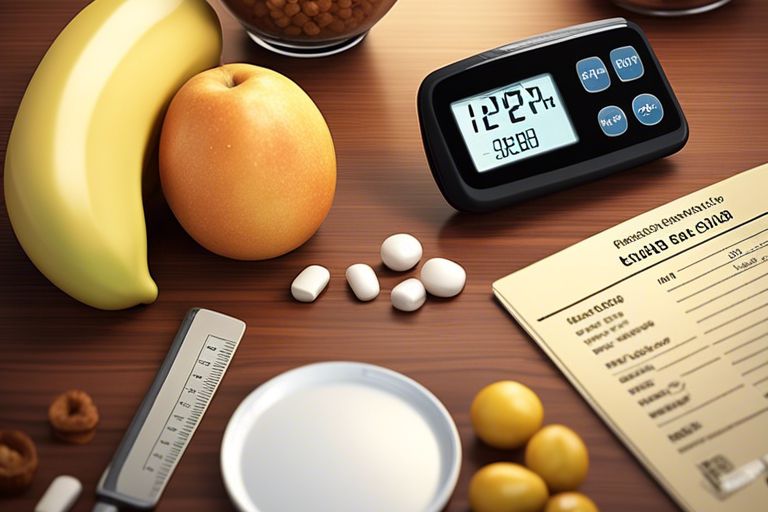Managing Type 1 Diabetes can be challenging, but with the right daily life tips and strategies, it is possible to lead a fulfilling and healthy lifestyle. From monitoring blood sugar levels to making smart food choices and incorporating regular exercise into your routine, there are various steps you can take to effectively manage your condition. In this blog post, we will explore practical tips and advice to help you navigate daily life with Type 1 Diabetes with confidence and ease.
Key Takeaways:
- Monitor blood sugar levels regularly: It is crucial for individuals with type 1 diabetes to consistently monitor their blood sugar levels to maintain control over their condition.
- Follow a balanced diet: Eating a healthy and balanced diet is crucial for managing type 1 diabetes and controlling blood sugar levels.
- Stay physically active: Regular exercise can help regulate blood sugar levels and improve overall health for individuals with type 1 diabetes.
- Keep track of insulin intake: It is important to properly monitor and administer insulin doses as recommended by healthcare professionals to manage blood sugar levels effectively.
- Seek support from healthcare professionals: Regular check-ups, consultations, and guidance from healthcare providers are crucial for successfully managing type 1 diabetes in daily life.
Nutrition and Diet
Carbohydrate Counting and Blood Sugar Control
Carbohydrate counting is a crucial aspect of managing type 1 diabetes as it directly impacts blood sugar levels. By accurately counting the carbohydrates in your meals and matching them with the right insulin dose, you can better control your blood sugar levels throughout the day. This helps in preventing sudden spikes or drops in blood sugar, ultimately leading to better management of your condition.
Meal Planning Strategies
Meal planning is key for individuals with type 1 diabetes to maintain a balanced diet and regulate blood sugar levels. By incorporating a variety of foods from different food groups, you can ensure a well-rounded nutritional intake. It is crucial to focus on the timing of meals and snacks, as well as the portion sizes, to keep blood sugar levels stable. Additionally, considering the glycemic index of foods can help in selecting options that have a gradual impact on blood sugar levels.
Monitoring and Medication
Blood Glucose Monitoring Techniques
Monitoring your blood glucose levels regularly is crucial for managing Type 1 Diabetes. There are various techniques available, including traditional finger-prick testing, continuous glucose monitoring systems, and flash glucose monitoring devices. Choose a method that suits your lifestyle and consult with your healthcare provider for guidance on frequency and target levels.
Insulin Therapy and Dosage Adjustment
Insulin therapy is the cornerstone of treatment for Type 1 Diabetes. Your healthcare team will work with you to determine the right type of insulin (such as rapid-acting, long-acting, or a combination) and the appropriate dosage based on factors like your weight, diet, activity level, and blood glucose monitoring results. It’s crucial to understand how to adjust your insulin doses based on your individual needs and to follow your healthcare team’s recommendations closely.
Managing Type 1 Diabetes involves a delicate balance of monitoring blood glucose levels and adjusting insulin therapy accordingly. It is crucial to stay vigilant about your daily routine, including meal timing, carbohydrate intake, physical activity, and stress levels, as these factors can all impact your blood glucose levels. Regular communication with your healthcare team is key to ensuring effective management and reducing the risk of complications in the long term.
Lifestyle Adjustments
Physical Activity Recommendations
Engaging in regular physical activity is crucial for managing type 1 diabetes effectively. Aim for at least 150 minutes of moderate-intensity exercise per week, such as brisk walking, cycling, or swimming. Exercise helps lower blood sugar levels, improve insulin sensitivity, and boost overall well-being. Remember to monitor your blood sugar before and after exercise to prevent any adverse effects.
Stress Management and Mental Health
Stress can significantly impact blood sugar levels and overall health for individuals with type 1 diabetes. Incorporating stress management techniques, such as mindfulness, deep breathing exercises, or yoga, can help reduce stress levels and improve mental well-being. Additionally, seeking support from mental health professionals or joining support groups can provide valuable resources for coping with the emotional challenges of living with diabetes.
Coping with Challenges
Dealing with Hypoglycemia and Hyperglycemia
Managing blood sugar levels is crucial for individuals with type 1 diabetes, and dealing with episodes of hypoglycemia (low blood sugar) and hyperglycemia (high blood sugar) can be challenging. It is important to always carry glucose tablets or a sugary drink to quickly raise low blood sugar levels. On the other hand, insulin adjustments or increased water intake can help bring down high blood sugar levels. Regular monitoring and quick action are key to managing these fluctuations effectively.
Navigating Social Situations and Travel
When navigating social situations and travel with type 1 diabetes, it is crucial to plan ahead and communicate your needs with friends, family, or travel companions. Ensure that you have a sufficient supply of insulin, testing supplies, and snacks on hand. Inform restaurant staff about your dietary requirements and be prepared to monitor your blood sugar levels more frequently during periods of increased activity or time zone changes. By being proactive and prepared, you can enjoy social events and travel experiences while effectively managing your diabetes.
Daily Life Tips for Managing Type 1 Diabetes
Managing Type 1 Diabetes requires a disciplined approach to daily life. By following some simple tips like monitoring blood sugar levels regularly, sticking to a balanced diet, engaging in regular exercise, and communicating effectively with healthcare professionals, individuals with Type 1 Diabetes can lead a healthier and more fulfilling life. It is necessary to stay informed about the condition, stay organised with medication and supplies, and seek support from friends and family when needed. By incorporating these tips into daily routines, individuals can effectively manage Type 1 Diabetes and reduce the risk of complications. Bear in mind, consistency is key in managing this chronic condition and leading a fulfilling life.
FAQ
Q: What is Type 1 Diabetes?
A: Type 1 Diabetes is a chronic condition in which the pancreas produces little or no insulin, a hormone needed to allow sugar (glucose) to enter cells to produce energy.
Q: How can I manage Type 1 Diabetes in my daily life?
A: Managing Type 1 Diabetes involves monitoring blood sugar levels, taking insulin injections or using an insulin pump, following a healthy diet, staying physically active, and regularly visiting healthcare professionals.
Q: Why is monitoring blood sugar levels important for people with Type 1 Diabetes?
A: Monitoring blood sugar levels is crucial for people with Type 1 Diabetes to ensure they are within target ranges, prevent hypo- or hyperglycaemia, and make informed decisions about insulin dosages and food intake.
Q: How does physical activity help in managing Type 1 Diabetes?
A: Physical activity helps in managing Type 1 Diabetes by improving insulin sensitivity, lowering blood sugar levels, reducing the risk of complications, and enhancing overall physical and mental well-being.
Q: What dietary considerations are important for individuals with Type 1 Diabetes?
A: Individuals with Type 1 Diabetes should focus on consuming a balanced diet rich in fruits, vegetables, whole grains, lean proteins, and healthy fats, while also monitoring carbohydrate intake to maintain stable blood sugar levels.




